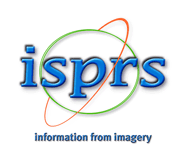ISPRS WG IV/11
Cultural Heritage Visualization and Virtual Restoration
Our Mission
The ISPRS Working Group IV/11 focuses on the conservation of cultural heritage by integrating traditional methods with digital workflows and management of multi-source data. It aims to establish a platform to facilitate communication between site custodians and practitioners of cultural heritage data management and conservation to enhance multidisciplinary experts and public engagement in cultural heritage conservation. GIS technology is an important means of spatial analysis and data processing in the field of cultural heritage, and it provides support for the protection and management of cultural heritage information, the visual display of heritage information, and the risk assessment of heritage disasters.
The WG proposes various ways of cultural heritage conservation concerning visualization and platforms, such as IoT, big data, BIM/CIM, AR/VR/MR, AI, computer-aided heritage information management and visualization applications, H-BIM, and digital twins. The WG encourages the use of spatial information in various fields such as heritage protection and disaster management towards improving domain-specific technology and applications. The WG will continue to work closely with related disciplines, national/international groups (e.g. CIPA), and other relevant ISPRS working groups
Working Group Officers | ||
Chair | ||
 | Grazia Tucci Department of Civil and Environmental Engineering University of Florence Via Micheli 8 50121, Florence ITALY +39-0552756587
| |
Co-Chair | ||
 | Miaole Hou School of Surveying and Mapping and Associate Dean, School of Humanities Beijing University of Civil Engineering and Architecture 1 Exhibition Road Xicheng District Beijing, 100044 CHINA +86-10-61209386
| |
Co-Chair | ||
 | Mario Santana Quintero Department of Civil and Environmental Engineering Carleton University 1125 Colonel By Drive Ottawa, ON, K1S 5B6 CANADA 613-520-2600 ext. 3093 or 7468
| |
Secretary | ||
 | Lei Luo Aerospace Information Research Institute Chinese Academy of Sciences 9 Dengzhuang South Rd. Beijing, 100094 CHINA 01082178985
| |
Supporters | ||
Advisor | ||
 | Stephen Fai Carleton Immersive Media Studio Azrieli School of Archietcture and Urbanism Carleton University 1125 Colonel By Drive Ottawa, ON, K1S 5B6 CANADA 613’520.2600 ext. 3423
| |
Terms of Reference
The work of the WG will concentrate on the following topics:
Topic 1: Cultural heritage cognition and conceptual modelling
- Cognition and ontology of cultural heritage
- Data integration and knowledge discovery
- GIS + HBIM integration of cultural heritage protection methods
- Visualization of cultural heritage ( Big Data, BIM/CIM, AR/VR/MR, AI)
- Conceptual modelling
- Intelligent interaction, visualization, and information update
Topic 2: Deterioration monitoring and assessment of culture heritage
- Identification, extraction and analysis of heritage deteriorations
- Deep learning of heritage deteriorations: symptom classification and visualization
- Dynamic monitoring of heritage deteriorations based on hyperspectral and X-ray techniques
- Analysis of the causes of heritage deteriorations
- Immersive heritage deteriorations diagnosis
- Evaluation and preventive protection of heritage deteriorations
- Automated deteriorations mapping
Topic 3: Digital twins and virtual restoration of cultural heritage
- Digital twins
- Innovation technology of spatio-temporal information of cultural heritage
- Virtual restoration, recovery, and reconstruction of cultural heritage
- Digital storytelling presentation and interpretation of cultural heritage (space, material, value)
- New Methods of Cultural Heritage Protection in the Post-epidemic Era
Topic 4: Heritage sustainability and other applications
- Cultural heritage conservation and sustainable development based on multi-source information fusion
- Sustainable development of cultural heritage based on the expansion of existing UNSDGs indicators
- Digital cultural heritage applications and services
- Innovating immersive experience and the industry of culture and tourism
- Contextual education of cultural heritage
- Digital cultural heritage interactive conservation with Public Participation
- Archaeological prospecting using spatial technologies, including remote sensing, GIS, and GNSS.
AI-powered identification of archaeological sites and/or landscapes
Spatial analysis of the past human-enviroment interactions
WG IV/11






